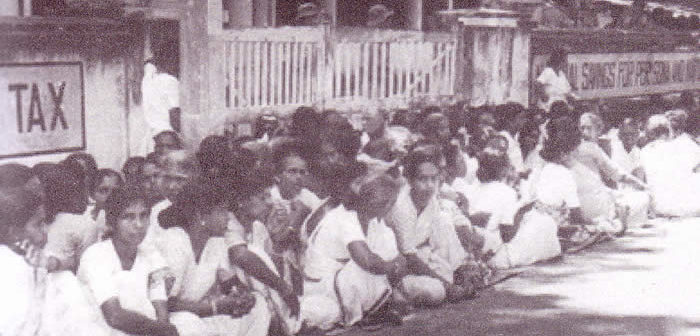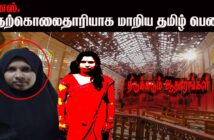FAQ on Tamil Eelam
Frequently Asked Questions (FAQ) on Tamil Eelam are prepared, up dated and posted for the benefit of those who are interested in the concept of Tamil Eelam, in Tamil Eelam studies and in the Tamil struggle of Sri Lanka.
- What is Tamil Eelam?
2. Why did Tamils in Sri Lanka want Tamil Eelam?
3. Is Tamil Eelam a communist idea?
4. Is there religious freedom in Tamil Eelam?
1. What is Tamil Eelam ?
Tamil Eelam is a de facto state in Indian Ocean. It is located below the Tamil Nadu state of India and in the North East of Sri Lanka. The state of Tamil Eelam has been established by the people living there under the right of self determination given by International Covenant of Civil and Political Rights , Article 1, to which Sri Lanka is a signatory.
2. Why did Tamils in Sri Lanka want Tamil Eelam ?
Sri Lanka, which was renamed in Sinhala in 1972, had been called as Ceylon by British during colonial times. Before 1833, the Tamil people were under different administration. They had their own kingdoms, culture and language which are very different from those of Sinhalese until 1505. The first colonial invasion took place in 1505. British brought Tamils and Sinhalese under one administration in 1833 and called this new colony as Ceylon. When the British left in 1948, the 20% Tamils were left with 80% Sinhalese within a unitary country where the decisions were taken by democratic parliament system. Under this system, racially polarised Sinhalese and Tamils were ruled by the constant majority of Sinhalese against the democratic wishes of Tamils as Tamils were the constant minority.
Reference: Document submitted by 17 NGOs in 50th Sessions of UN Commission on Human Rights:
“There is a need to recognise that the deep divisions between the Sri Lanka government and the Tamil people cannot be resolved by the use of force against Tamil resistance. The Tamil population in the North and East of the island, who have lived from ancient times within relatively well defined geographical boundaries in the north and east of the island, share an ancient heritage, a vibrant culture, and a living language which traces its origins to more than 2500 years ago. …Before the advent of the British …, separate kingdoms existed for the Tamil areas and for the Sinhala areas in the island. The Tamil people and the Sinhala people were brought within the confines of one state for the first time by the British in 1833. After the departure of the British in 1948, an alien Sinhala people speaking a language different to that of the Tamils and claiming a separate and distinct heritage has persistently denied the rights and fundamental freedoms of the Tamil people. .. ! It is …our view that the Secretary General should consider invoking his good offices with the aim of contributing to the establishment of peace in the island of Sri Lanka through respect for the existence of the Tamil homeland in the North East of the island of Sri Lanka and recognition for the right of the Tamil people to freely determine their political status.”
3. Is Tamil Eelam a communist idea?
No. Tamil Eelam is the home land of highly religious Hindu, Christian and Islamic Tamil speaking people. Tamils of Tamil Eelam are from the ancient times, known for their trade and commerce. Tamil Eelam will be a democratic country once it become independent.
4. Is there religious freedom in Tamil Eelam?
Not only religious freedom, but the people are encouraged to follow their own religion by Tamil Eelam administration even under the severe war conditions and economic ban. The Christian, mainly Catholic and Hindu religious leaders are always provided all the support needed for their religious freedom. Islam, however, is not being practised presently, as the Muslims have been asked to leave the Tamil Eelam territory until the independence of Tamil Eelam. The Muslims supported the aggressive Sri Lankan Sinhala and Muslim Military against the freedom of Tamil Eelam.




